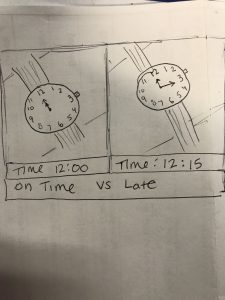Part I
Professionalism is found in many communities such as the workplace, schools, businesses, the hospitality industry and so on. I have worked in restaurants where professionalism is key to making a company look good and enhance the quality of the guests experience. According to the Merriam-Webster dictionary, professionalism is believed to have been used first in 1856, it means” 1. The conduct, aims, or qualities that characterize or mark a profession or a professional person. 2. The following of a profession (such as athletics) for gain or livelihood”. To get a better understanding of what professionalism means I looked up the word conduct which is used in the definition of professionalism. According to the Merriam-Webster, the word conduct is “ a mode or standard of personal behavior especially as based on moral principles.”
Part II
As a real world definition from the Urban dictionary, the word professionalism is “ any business practice in which happiness is sacrificed for success.” In my own words and understanding professionalism is, when you are working hard in an industry as an employee trying to make sure each client is satisfied with your services or the company you represent. I believe it is the act of doing everything you can so the client is satisfied. It can also mean you are mannerly, respectful, patient, and get the job done correctly.
Part III
The working community is where professionalism is taken seriously and plays an important role. Without professionalism people would have a hard time pleasing others, maintaining a calm and civilized manner. Professionalism plays a role in any business or in the hospitality industry. Some examples of professionalism are when employees dress nice, are polite to clients, and respectful when hearing any complaints from clients. Even though it is not always easy to help others, the act of being calm, kind and respectful shows you are being professional and can positively impact you in the workplace. I have worked in the restaurant industry for almost a year now and have served at my church on the hospitality team for 3 years. I gained so much experience in how to treat others professionally in those settings. While in the industry I am learning what is and is not professional. Here are some examples of what not to do : if I, the employee was to do things such as not dressing in the proper uniform, not be greeting customers, not giving eye contact, speaking to them with disrespect and making them feel uncomfortable. If something were to happen with a customer and they were unhappy, resolving the problem calmly would be an example of professionalism.
We all have a private life and a professional life, and we need to know the lines between them. I would not tell my life’s troubles to a customer, and begin crying, but I would do that with a personal friend, in my private life. Sometimes customers begin to talk very personally with you in the hospitality industry and I believe we can listen and maintain professionalism without being too personal. Another way to keep things professional is by not responding to a customer who is flirting by flirting back. If you keep your responses consistent with how you would handle any other customer, and maintain a polite customer service attitude, the customer will get the hint. If you were to go deeply in conversation like that with a customer, you would not be behaving in a professional way. Some customers may become confused, think that you were interested in them, this is a good example of what would cross the professional boundary.
Whether you’re working as a server at a restaurant, as a lawyer dealing with clients, as a team member in a company, as a doctor, even as a secretary, professionalism is going to help you achieve your goals as well as get the job done correctly. The act of being professional in the hospitality industry has many benefits, people will give you more respect and will listen to what you have to say. When displaying professionalism in the workplace there is more hope for promotion and getting hired by a company.
I drew 2 images: one that showed a watch, because if you are in the workplace being on time shows respect. The other drawing is of an employee wearing what not to wear to work vs. the proper uniform. Both of these are examples of workers showing professionalism because they are being considerate, timely, dependable,and are reflecting well on the company they work for.
In conclusion, professionalism is found in so many types of communities, one being the working community. In the working community professionalism is portrayed through respecting others, being kind, calm and patient with others and in a workplace/professional setting.





